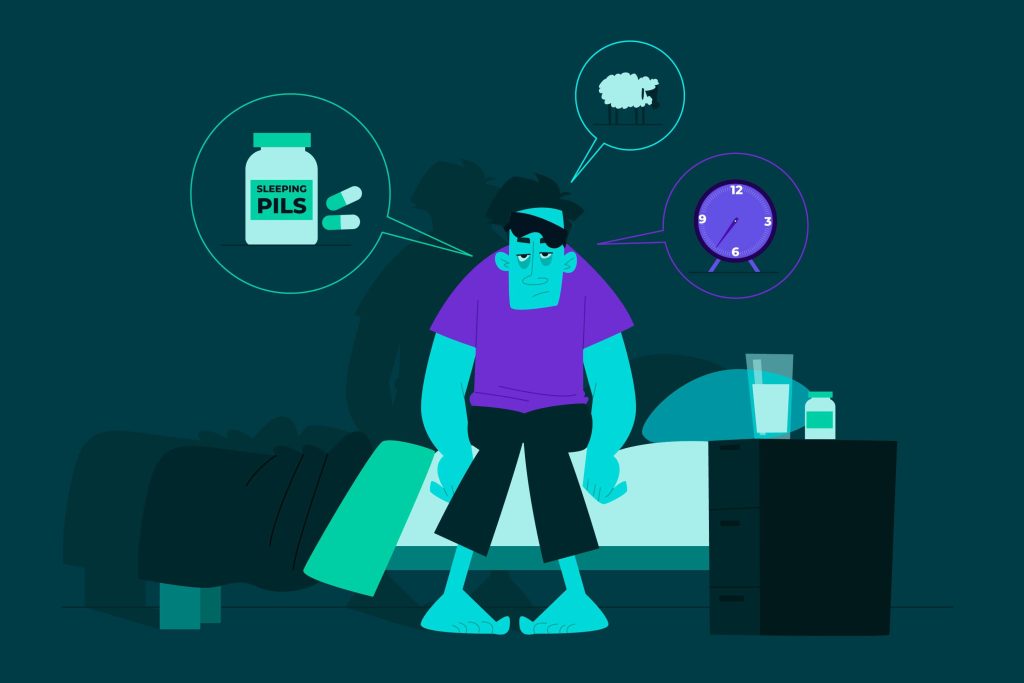Somatoform Disorder (also known as Somatic Symptom Disorder or Psychosomatic Disorder) is a mental health disorder in which someone experiences physical symptoms resulting from psychological distress. In other words, the person’s body reacts to their emotional state. Somatoform Disorder can manifest itself through a variety of physical symptoms, including pain, fatigue, difficulty sleeping, headaches, and more.
Although Somatoform Disorder is not yet fully understood by researchers, it is believed to be caused by a combination of biological and psychological factors. Biologically, Somatoform Disorder can result from imbalances in hormones or neurotransmitters (chemicals that help transmit messages in the brain). Psychologically, Somatoform Disorder can be caused by stress, anxiety, depression or other mental health issues.
What is Somatoform Disorder?
Treatment for Somatoform involves both psychotherapy and medication. Cognitive Behavioral Therapy (CBT) can help people change their thought patterns to reduce symptoms. Medication may also be prescribed to treat underlying physical or psychological conditions.
It is important to note that Somatoform Disorder is not a sign of weakness or “making things up”. It is a serious mental health condition that warrants professional treatment and support. If you believe you may be suffering from Somatoform Disorder, speak to your doctor about the best course of action for you. With the right care and support, Somatoform can be managed to help you live a healthier, happier life.
What are the symptoms of Somatoform Disorder?
Somatoform Disorder is characterized by physical symptoms that cannot be explained by a medical condition or another mental health disorder. Common symptoms include:
– Pain in the back, chest, abdomen, or other parts of the body
– Headache and/or dizziness
– Difficulty sleeping
– Fatigue
– Shortness of breath
– Numbness or tingling in the extremities
– Upset stomach
These symptoms can be disruptive to daily life and may interfere with a person’s ability to interact and socialize.

How do you stop somatic symptoms?
Somatic symptoms can be managed with the help of a mental health professional. Treatment typically involves psychotherapy, medication, and lifestyle changes. Cognitive Behavioral Therapy (CBT) is an effective form of therapy for Somatoform , as it helps individuals recognize their thought patterns and change them to reduce distress and somatic symptoms. Medications, such as antidepressants and mood stabilizers, can help manage underlying psychological symptoms.
In addition to treatment from a mental health professional, lifestyle changes can also play an important role in reducing Somatoform Disorder symptoms. Exercise, relaxation techniques, healthy eating habits, and adequate rest all contribute to better physical and mental health. In some cases, dietary and herbal supplements may also be helpful.
Living with Somatoform can be difficult, but with the right support and treatment, it is possible to reduce symptoms and lead a fulfilling life. If you are experiencing Somatoform Disorder symptoms, reach out to your doctor for help. With the right care and support, This disorder can be managed to help you live a healthier, happier life.
How do I stop somatic anxiety?
Somatic anxiety can be managed with a combination of psychotherapy, medication, and lifestyle changes. Cognitive Behavioral Therapy (CBT) is an effective form of therapy for Somatoform, as it helps individuals recognize their thought patterns and change them to reduce distress and somatic anxiety.

Do you know that your mental health can directly affect your physical health?
Yes, your mental health can have a direct impact on your physical health. Somatoform is one example of how psychological distress can lead to physical symptoms. To maintain both mental and physical wellness, it’s important to practice self-care, seek help when needed, and be aware of any changes in your mood or behavior. If you believe that your mental health is affecting your physical health, speak to your doctor about the best course of action for you. With the right care and support, Somatoform can be managed to help you live a healthier, happier life.
What is Difference between Conversion Disorder and Somatoform Disorder?
While Somatoform and Conversion Disorder both involve physical symptoms that are caused by psychological distress, there are some distinct differences between the two. Somatoform is characterized by physical symptoms that cannot be explained by a medical condition or other mental health disorder and can have varying degrees of severity. In contrast, Conversion Disorder is when an individual experiences a physical symptom (often paralysis or difficulty speaking) that can be linked to psychological distress.
It is typically more severe than Somatoform Disorder and the physical symptoms are generally easier to identify. While Somatoform and Conversion Disorder both involve psychological distress manifesting in physical symptoms, it’s important to seek out a diagnosis and treatment for both conditions from a mental health professional. With the right care and support, Somatoform can be managed to help you live a healthier, happier life.
Conclusion
Somatoform Disorder is a mental health condition that causes an individual to experience physical bodily symptoms in response to psychological distress. Treatment typically involves psychotherapy, medication, and lifestyle changes. Cognitive Behavioral Therapy (CBT) is an effective form of therapy, as it helps individuals recognize their thought patterns and change them to reduce distress and somatic anxiety. With the right care and support, This Disorder can be managed to help you live a healthier, happier life. If you are experiencing symptoms, reach out to your doctor for help.


